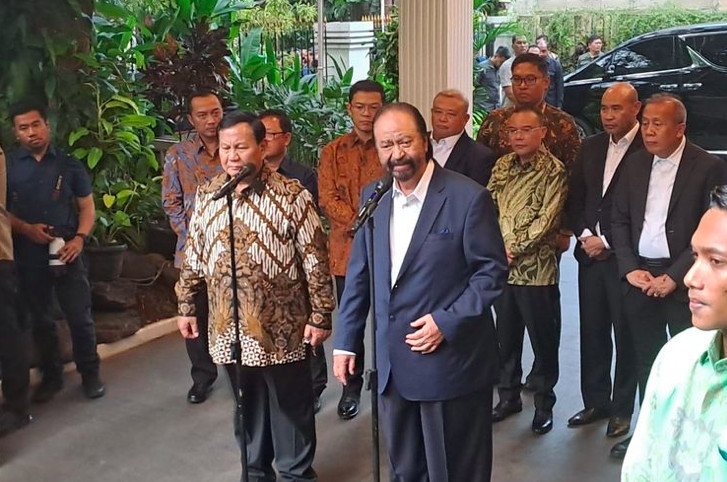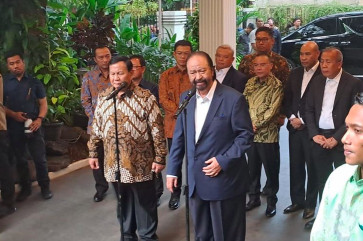Popular Reads
Top Results
Can't find what you're looking for?
View all search resultsPopular Reads
Top Results
Can't find what you're looking for?
View all search resultsWill party cartels prevail under Prabowo’s administration?
If the lack of horizontal and vertical checks and balances persists, the consolidation of power under Prabowo could be even more massive with unaccountable governance.
Change text size
Gift Premium Articles
to Anyone
V
arious political parties have begun maneuvering after the Constitutional Court upheld on April 22 the victory of Prabowo Subianto and his running mate Gibran Rakabuming Raka in the Feb. 14 presidential election.
The NasDem Party and the National Awakening Party (PKB), which supported the Anies Baswedan-Muhaimin Iskandar ticket in the presidential race, have moved to establish close ties with president-elect Prabowo in a flurry of talks.
The statements of NasDem chairman Surya Paloh and PKB leader Muhaimin, who have expressed their willingness to support the Prabowo government, further strengthen the prospect of the cartelization of political parties during the Prabowo administration, which would echo the political dynamics under outgoing President Joko “Jokowi” Widodo, who will finish a decade in office in October, and his immediate predecessor Susilo Bambang Yudhoyono (SBY), who served as president from 2004 to 2014.
As Dan Slater (2004) and Kuskridho Ambardi (2008) point out, accountability is still one of the main democratic problems in Indonesia, represented by the prominence of "political cartels" in the party system.
Party cartels refer to political parties that initially compete fiercely but then compromise to share the executive power pie once the election is over, no matter the ideology. This practice has caused Indonesia’s political parties to increasingly disregard the interests of their constituents and rely more on incumbents to secure abundant political and economic resources with their collusive networks (Slater 2004).
The effective expansion of party cartels means that political competition is no longer fair and will only jeopardize the horizontal checks and balances of democracy given the lack of significant opposition.
We should be proud that Indonesia's democracy has reached a level of consolidation. However, following Indonesia's transition to democracy in 1998, the anticipated emergence of an effective opposition has never materialized. Rather, post-reform Indonesian presidents adopted a strategy of power-sharing, characterized by what Slater (2018) calls "oversized coalitions" among political parties, effectively coopting opposition forces.



















